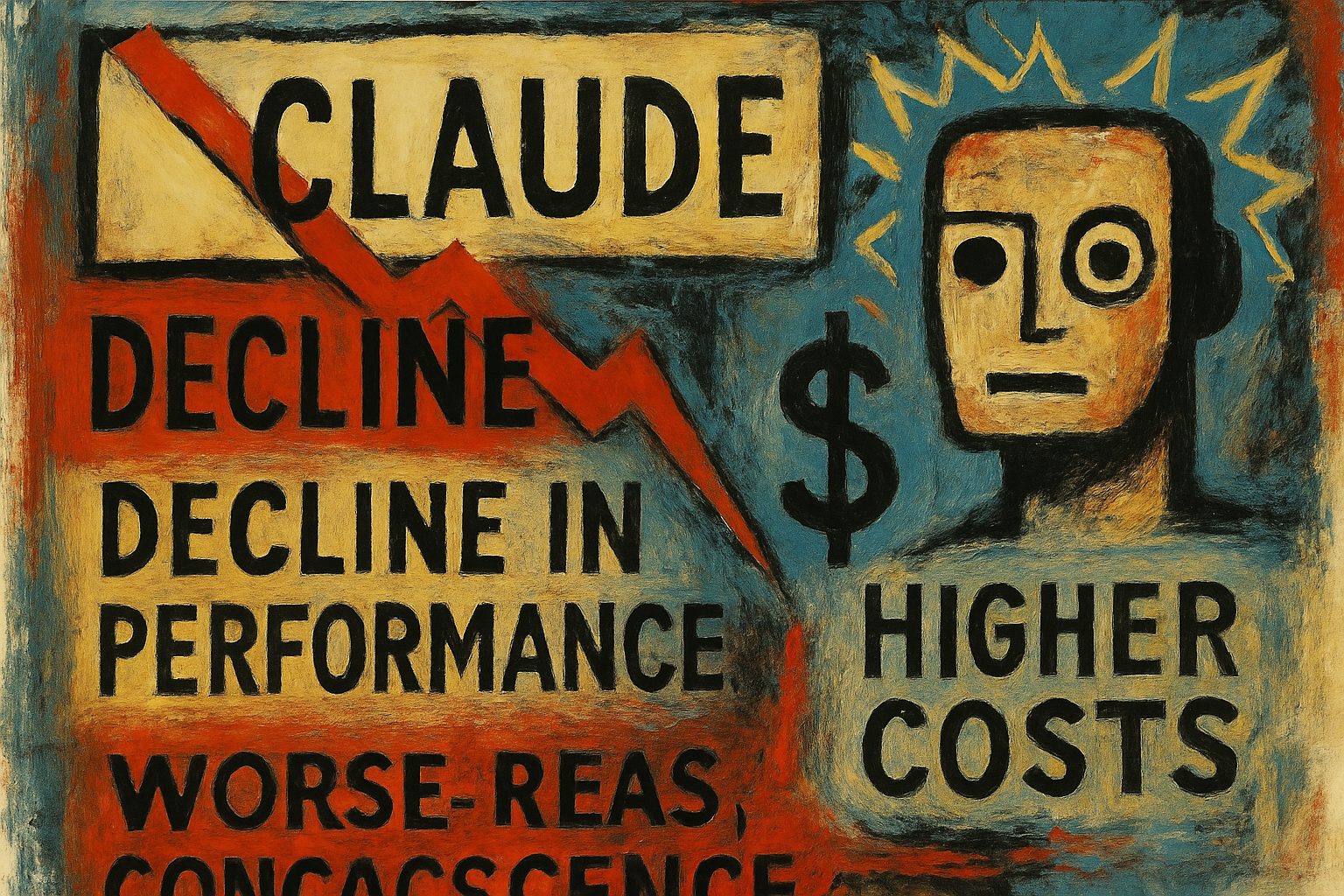
Venezuela’s Economic Crisis in the Context of U.S. Sanctions: A Multifaceted Analysis¶

Thesis & Position¶
The Venezuelan economic collapse represents one of the most severe humanitarian and economic crises in modern Latin American history, characterized by hyperinflation, mass emigration, and profound social suffering. While U.S. sanctions have undoubtedly exacerbated this crisis, they represent just one factor in a complex interplay of domestic policy failures, corruption, and external pressures that have collectively driven Venezuela’s economic downfall.
Evidence & Facts¶
Historical Context and Escalating Sanctions¶
The United States began imposing targeted sanctions on Venezuelan officials as early as 2006, but the scope and severity intensified significantly following the 2017 constitutional crisis. According to Wikipedia’s comprehensive timeline of Venezuelan sanctions, these measures evolved from individual travel bans and asset freezes to comprehensive economic restrictions targeting Venezuela’s critical oil sector, government debt transactions, and gold exports.
The most impactful measures include:
– 2017 financial sanctions prohibiting trading in new Venezuelan government debt
– 2019 oil sanctions targeting Venezuela’s state-owned PDVSA oil company
– Sectoral sanctions on gold mining and other key industries
The U.S. Treasury Department’s 2025 sanctions announcement against what it termed the “Venezuelan Cartel Headed by Maduro” represents the latest escalation, framing the sanctions as targeting “narco-terrorism and corruption” rather than the Venezuelan people.
Economic Impact Metrics¶
Venezuela’s economic indicators reveal a nation in profound distress:
| Indicator | Pre-Sanctions (2013) | Current Estimate | Decline |
|---|---|---|---|
| GDP | $371 billion | ~$70 billion | ~81% |
| Oil Production | 2.9 million bpd | ~500,000 bpd | ~83% |
| Inflation | 56.2% | >10,000,000% | Catastrophic |
| Poverty Rate | 32% | >96% | Extreme deterioration |
Sources: WOLA analysis, IMF, World Bank
Critical Analysis¶
Weighing Domestic vs. External Factors¶
The central analytical challenge lies in differentiating between the effects of sanctions and Venezuela’s profound domestic policy failures:
Domestic Policy Failures:
– Economic mismanagement: Price controls, expropriations, and currency controls that began years before major sanctions
– Corruption and institutional decay: Rampant graft within PDVSA and government institutions
– Hyperinary monetary policy: Central bank financing of fiscal deficits creating monetary chaos
Sanctions Impact:
– Accelerated economic contraction: Cutting off oil revenue and financial access exacerbated existing crises
– Humanitarian consequences: Restrictions complicated food and medicine imports despite humanitarian exemptions
– Geopolitical isolation: Limited Venezuela’s ability to seek alternative economic partnerships
The WOLA analysis suggests that while “sanctions have clearly exacerbated the country’s economic crisis,” they “did not cause the crisis, which was well underway before the imposition of the most severe economic sanctions.”
Comparative Impact Assessment¶
| Factor | Contribution to Crisis | Mitigation Potential |
|---|---|---|
| Oil Price Collapse | Significant (2014-2016) | Limited |
| Economic Mismanagement | Primary driver | High with policy change |
| Corruption | Major exacerbating factor | Requires institutional reform |
| U.S. Sanctions | Significant accelerator | Reversible with political change |
| International Isolation | Moderate | Diplomatic engagement |
Logical Reasoning¶
Cause and Effect Analysis¶
Applying common sense economic principles reveals several logical chains:
-
Energy dependency vulnerability: Venezuela built an economy that was ~95% dependent on oil exports, creating extreme vulnerability to both price shocks and export restrictions
-
Sanctions multiplier effect: When applied to an already collapsing economy, sanctions acted as an accelerant rather than primary cause
economic_collapse = (domestic_policy_failures × corruption) + (external_shocks × sanctions_multiplier) -
Humanitarian impact logic: Comprehensive sanctions on a country’s primary revenue source inevitably affect population welfare, regardless of humanitarian exemptions
-
Political objective assessment: If sanctions aimed to pressure political change, their economic effectiveness
Thesis & Position¶
The U.S. sanctions on Venezuela, implemented over decades, have aimed to pressure the Maduro regime into democratic reforms but have also exacerbated the country’s economic collapse, humanitarian crisis, and institutional fragility. While intended to target specific actors and sectors, these measures have had broad, unintended consequences on the Venezuelan population and economy, raising critical questions about the efficacy and ethics of comprehensive sanctions as a foreign policy tool.
Evidence & Facts¶
Historical Context and Escalation¶
U.S. sanctions against Venezuela began in the early 2000s but intensified significantly during the crisis in Venezuela starting around 2014. Key measures include:
– Financial sanctions: Restricting access to U.S. financial markets for Venezuelan state entities, notably Petróleos de Venezuela, S.A. (PDVSA), the state-owned oil company.
– Individual sanctions: Targeting high-ranking officials and entities accused of corruption, human rights abuses, and anti-democratic actions, such as the Treasury’s 2025 sanctions against a “Venezuelan Cartel Headed by Maduro”.
– Sectoral sanctions: Broader restrictions on oil, gold, and other key exports, crippling the country’s primary revenue sources.
Economic Impact¶
Venezuela’s economy, heavily dependent on oil exports, contracted dramatically under sanctions:
– GDP declined by over 80% between 2013 and 2021.
– Oil production plummeted from nearly 2.5 million barrels per day (bpd) in the early 2010s to below 400,000 bpd by 2020.
– Hyperinflation reached unprecedented levels, with the annual rate exceeding 1,000,000% in 2018.
These outcomes are documented in sources such as the Wikipedia overview of sanctions during the Venezuelan crisis and analyses from organizations like WOLA.
Humanitarian Consequences¶
Sanctions have severely impacted public welfare:
– Food and medicine shortages: Import restrictions reduced access to essential goods.
– Mass migration: Over 6 million Venezuelans have fled the country due to economic hardship.
– Healthcare collapse: Reports indicate increases in preventable diseases and mortality rates.
A 2020 WOLA report highlights that while sanctions targeted the regime, their broad application worsened living conditions for ordinary citizens.
Critical Analysis¶
Weighing Intentions vs. Outcomes¶
U.S. sanctions were designed to:
– Pressure the regime: Encourage democratic transition and respect for human rights.
– Target elites: Minimize harm to the general population through focused measures.
However, evidence suggests that:
– Regime resilience: The Maduro government adapted by diversifying alliances (e.g., with Russia, China, and Iran) and leveraging illicit economies.
– Collateral damage: Broad sectoral sanctions disrupted legal trade, harming civilians more than officials.
Differentiating Perspectives¶
| Perspective | Argument | Key Support |
|---|---|---|
| U.S. Government | Sanctions are necessary to combat corruption and restore democracy. | Treasury sanctions press releases |
| Critics/Academics | Sanctions worsen humanitarian conditions and strengthen authoritarian narratives. | WOLA analysis |
| Venezuelan Opposition | Mixed views; some support sanctions as leverage, others fear collective punishment. | Various opposition statements |
Comparing Policy Approaches¶
| Policy Tool | Effectiveness | Humanitarian Impact |
|---|---|---|
| Targeted Sanctions | Moderate (isolates elites) | Low collateral damage |
| Sectoral Sanctions | High (economic pressure) | Severe humanitarian consequences |
| Diplomatic Engagement | Low (historically ineffective) | Minimal direct impact |
Logical assessment indicates that targeted sanctions may align better with ethical objectives, while sectoral sanctions risk unintended harm without guaranteed political change.
Logical Reasoning¶
Using common sense and historical parallels:
– Economic pressure alone rarely forces political change; it often consolidates authoritarian control by fostering a siege mentality.
– Humanitarian exemptions in sanctions regimes are often inefficient, as compliance complexities deter legitimate trade.
– Long-term instability may result, making post-san
Vyftec – Wirtschaftsanalyse & Forschungsberichte¶
Wir erstellen datengetriebene Wirtschaftsanalysen und Forschungsberichte mit tiefgehender Markt- und Technologieexpertise. Basierend auf Projekten wie der Entwicklung von Trading-Bots mit maschinellem Lernen und Echtzeit-Datenvisualisierung für Reishauer kombinieren wir quantitative Analyse, API-Integrationen und automatisierte Datenerfassung. Unsere Erfahrung mit Wirtschaftsdaten, Korrelationsanalysen und Forecasting-Modellen ermöglicht präzise, evidenzbasierte Berichte – perfekt für Ihre Analyse der venezolanischen Wirtschaft unter US-Sanktionen.
Als Schweizer Web-Agentie garantieren wir höchste Qualitätsstandards, Sicherheit und termingerechte Lieferung durch agile Prozesse und AI-gestützte Effizienz. Lassen Sie uns Ihr Forschungsprojekt gemeinsam umsetzen – kontaktieren Sie uns für ein unverbindliches Gespräch.
📧 damian@vyftec.com | 💬 WhatsApp


